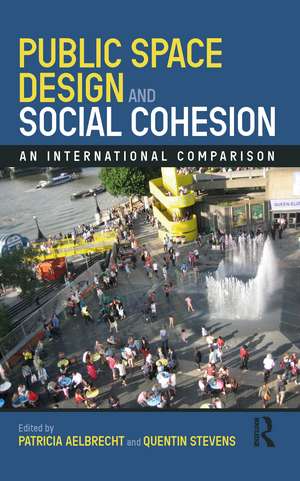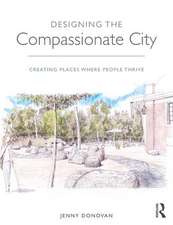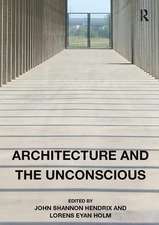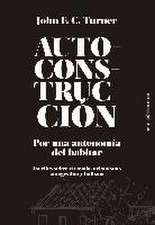Public Space Design and Social Cohesion: An International Comparison
Editat de Patricia Aelbrecht, Quentin Stevensen Limba Engleză Paperback – 6 feb 2019
This book brings together scholarly knowledge at the intersection of public space design and social cohesion. It is based on original scholarly research and a depth of urban design practice, and analyses case studies from a variety of cities and cultures across the Global North and Global South. Its interdisciplinary, cross-cultural analysis will be of interest to academics, students, policymakers and practitioners engaged with a range of subject areas, including urban design, urban planning, architecture, landscape, cultural studies, human geography, social policy, sociology and anthropology. It will also have significant appeal to a wider non-academic readership, given its topical subject matter.
| Toate formatele și edițiile | Preț | Express |
|---|---|---|
| Paperback (1) | 387.72 lei 3-5 săpt. | +26.18 lei 6-12 zile |
| Taylor & Francis – 6 feb 2019 | 387.72 lei 3-5 săpt. | +26.18 lei 6-12 zile |
| Hardback (1) | 1017.94 lei 6-8 săpt. | |
| Taylor & Francis – 13 feb 2019 | 1017.94 lei 6-8 săpt. |
Preț: 387.72 lei
Nou
Puncte Express: 582
Preț estimativ în valută:
74.21€ • 77.18$ • 62.19£
74.21€ • 77.18$ • 62.19£
Carte disponibilă
Livrare economică 21 februarie-07 martie
Livrare express 06-12 februarie pentru 36.17 lei
Preluare comenzi: 021 569.72.76
Specificații
ISBN-13: 9781138594036
ISBN-10: 1138594032
Pagini: 374
Ilustrații: 9 Tables, black and white; 4 Line drawings, black and white; 62 Halftones, black and white; 75 Illustrations, black and white
Dimensiuni: 152 x 229 x 21 mm
Greutate: 0.54 kg
Ediția:1
Editura: Taylor & Francis
Colecția Routledge
Locul publicării:Oxford, United Kingdom
ISBN-10: 1138594032
Pagini: 374
Ilustrații: 9 Tables, black and white; 4 Line drawings, black and white; 62 Halftones, black and white; 75 Illustrations, black and white
Dimensiuni: 152 x 229 x 21 mm
Greutate: 0.54 kg
Ediția:1
Editura: Taylor & Francis
Colecția Routledge
Locul publicării:Oxford, United Kingdom
Public țintă
General, Postgraduate, Professional, and UndergraduateCuprins
Introduction: From mixing with strangers to collective placemaking: existing theories, policies and practices around social cohesion in public space design Public Space Design, Development and Management Processes Top-down projects Chapter 1. The Making of Democratic Urban Public Space in Denmark Chapter 2. The Marginalised Others: Memorials to non-Jewish Holocaust victims in Berlin’s Government District Chapter 3. Social Cohesion vis-a-vis Spatial Division: The Contradictions of Participatory Design Chapter 4. The Role of Public Spaces on Social Cohesion and Inclusivity: Metamorphosis of a historic park in Ankara, Turkey Chapter 5. A Placemaking Approach to Estate Regeneration Projects: A Practitioner's Perspective Bottom-up projects Chapter 6. Bottom-up Public Space Design and Social Cohesion: The case of a self-developed park in an informal settlement of Bogotá Chapter 7. UN Habitat’s engagement of residents, refugees and local authorities in a public space design process in Bourj Hammoud, Lebanon Chapter 8. Open Green: Placemaking beyond Place-bound Communities in Taipei Post-occupation evaluations Chapter 9. New Public Spaces of Circulation, Consumption and Recreation and their Scope for Informal Social Interaction and Cohesion Chapter 10. Visibility of Turkish Amenities: Immigrant’s Integration and Social Cohesion in Amsterdam Chapter 11. Pop-up Landscape Design and the Disruption of the Ordinary Chapter 12. Designing for Difficulty: Agonistic Urban Design Chapter 13. Exploring Social Equity in the Park: Design and Management of new city-centre spaces in Sheffield, UK, and Ahmedabad, India Chapter 14. The Streets: a Fluid Place of Social Cohesion Conclusion: Emerging Knowledge at the Intersection of Public Space Design and Social Cohesion
Notă biografică
Patricia Aelbrecht is Lecturer in Urban Design at the School of Geography and Planning, Cardiff University, UK. Her research focuses on the social dimension of urban design, in particular on how social practices and activism in public space shape and redefine the meanings and uses of public spaces in a wide range of cultural and social contexts in Europe. Recent work also investigates mega-events as catalysts of urban regeneration and the contested regeneration of post-war modernist cityscapes. She holds a PhD in Urban Studies and an MSc in International Planning from University College London, and a BArch and MArch from the Technical University of Lisbon, Portugal.
Quentin Stevens is Associate Professor in the School of Architecture and Design at RMIT University in Melbourne, Australia. He is author of The Ludic City, joint editor of Loose Space: Possibility and Diversity in Urban Life (both Routledge 2007), and author or editor of four other books with Routledge. His research focuses on environment-behaviour relations in public spaces; his recent projects have investigated social engagement around public memorials, public artworks, and urban waterfronts. He holds a PhD in Urban Design and a BArch from the University of Melbourne, and a Master’s in Urban Planning and Policy from the University of Illinois at Chicago, USA.
Quentin Stevens is Associate Professor in the School of Architecture and Design at RMIT University in Melbourne, Australia. He is author of The Ludic City, joint editor of Loose Space: Possibility and Diversity in Urban Life (both Routledge 2007), and author or editor of four other books with Routledge. His research focuses on environment-behaviour relations in public spaces; his recent projects have investigated social engagement around public memorials, public artworks, and urban waterfronts. He holds a PhD in Urban Design and a BArch from the University of Melbourne, and a Master’s in Urban Planning and Policy from the University of Illinois at Chicago, USA.
Recenzii
"Rather than living in segregated, inward-looking communities this innovative collection illuminates the role of public space design in promoting social cohesion and inclusion globally. By examining bottom-up and engaged urban design projects the editors have brought together compelling empirical examples written by well-known researchers and design professionals working in the United States, Europe, Southeast Asia and Latin America that illustrate the strength and complexity of this relationship. The chapters focus on neighborhoods, housing estates, squares and streets where conflicts and solidarity are played out, and emphasize the spatiality of social cohesion as well as the cultural context of public spaces in people’s everyday lives. It provides a first look at what is happening internationally in terms of how urban design practice and local activism is taking back public space into their diverse lives, and in the process creating a more solid grounding for social relations, belonging and recognition of the other."
Setha Low, Professor of Environmental Psychology and Director of the Public Space Research Center, The Graduate Center, City University of New York
"This book is a valuable contribution to public space scholarship, bringing together a collection of comparative case studies from around the world that investigate whether and how public spaces can have a positive role in the perennial and contested search for social cohesion in diverse, stratified and fragmented urban societies."
Professor Ali Madanipour, School of Architecture, Planning and Landscape, Newcastle University, UK
Setha Low, Professor of Environmental Psychology and Director of the Public Space Research Center, The Graduate Center, City University of New York
"This book is a valuable contribution to public space scholarship, bringing together a collection of comparative case studies from around the world that investigate whether and how public spaces can have a positive role in the perennial and contested search for social cohesion in diverse, stratified and fragmented urban societies."
Professor Ali Madanipour, School of Architecture, Planning and Landscape, Newcastle University, UK
Descriere
Public space, in its role as the main stage for social interactions between strangers, clearly plays a role in facilitating or limiting opportunities for social cohesion. This book synthesizes scholarly knowledge at the intersection of public space design and social cohesion and is based on original research and a depth of urban design practice.







